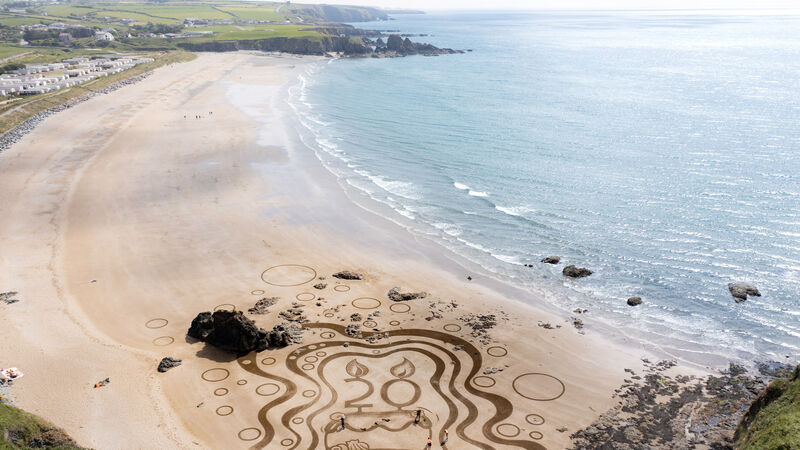Irish Examiner view: Sea is steaming

Clean Coasts created a special sand art mural with artist Sean Corcoran from The Art Hand at Bunmahon Beach, Co Waterford. Picture: Cathal Noonan
There is increasing evidence that an “unheard of” marine heatwave in the seas off Ireland and Britain will dramatically impact various species of fish and crustaceans in our waters.
At a time when the climate crisis is having an evident effect on global land masses, research has shown that ever-higher temperatures could have a devastating effect on life in our oceans as well.
CLIMATE & SUSTAINABILITY HUB
















